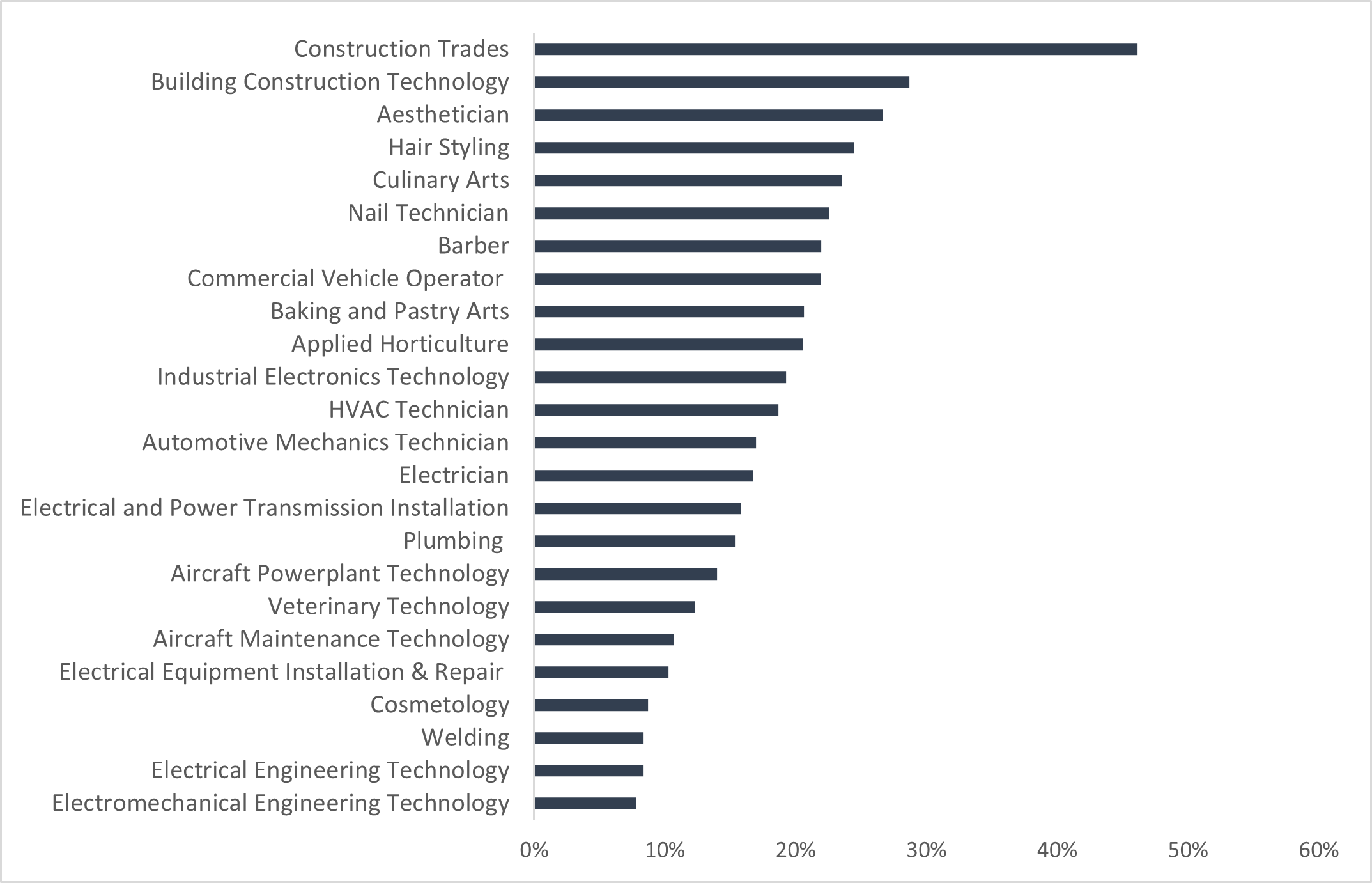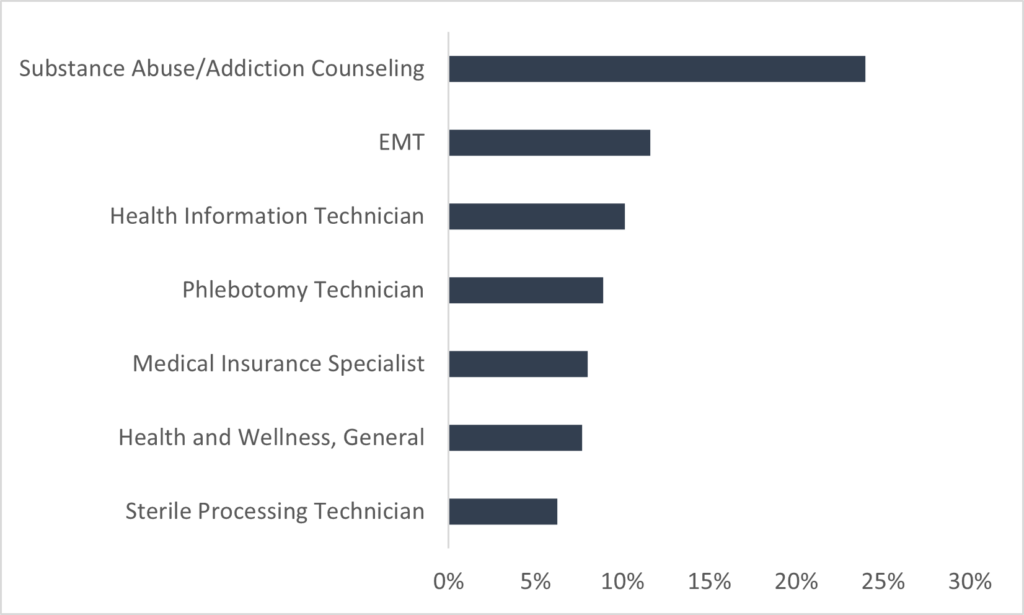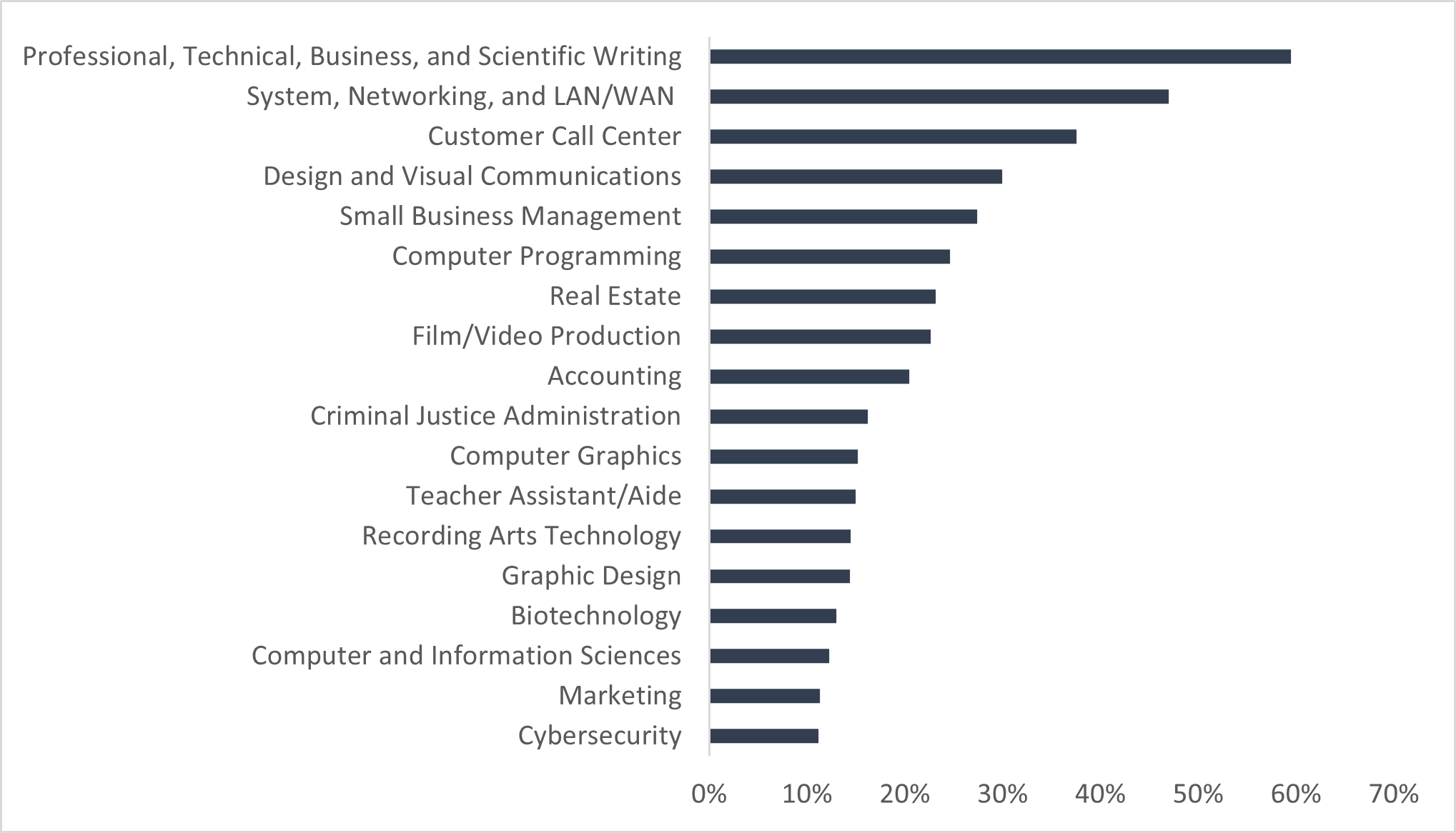
Nadine Brock
February 6, 2024
Don’t overlook undergraduate certificates in your efforts to increase enrollment. Undergraduate certificates volume is nearly equal to that of associate degrees and had a higher growth rate. The table reflects actual degrees awarded to students.
| 2022 Volume | 21-22% | |
| Undergraduate Certificates | 1,047,150 | 4.8% |
| Postbaccalaureate Certificates | 66,797 | 4.1% |
| Post-master’s Certificates | 26,081 | 6.8% |
SOURCE: U.S. Department of Education, National Center for Education Statistics, Integrated Postsecondary Education Data System (IPEDS), Award completions data. Undergraduate certificates combine 4 certificate types; 1. Certificates of less than 12 weeks, 2. Certificates of 12 weeks but less than 1 year, 3. Certificates of 1 year but less than 2 years, 4. Certificates of at least 2 years but less than 4 years.
Undergraduate certificates that are completed in 12 weeks or less posted 11.9% growth—students want short education sprints and convenient delivery to gain skills needed for jobs.
| 2022 Volume | 21-22% | |
| Less than 12 weeks | 97,441 | 11.9% |
| At 12 weeks but less than 1 year | 485,005 | 4.6% |
| At least 1 but less than 2 years | 441,562 | 3.7% |
| At least 2 but less than 4 years | 23,142 | 1.8% |
| Total undergraduate certificates | 1,047,150 | 4.8% |
SOURCE: U.S. Department of Education, National Center for Education Statistics, Integrated Postsecondary Education Data System (IPEDS), Award completions data.
Community colleges, technical, and vocational schools offer the bulk of the career and technical undergraduate certificate programs in the U.S. to help students directly enter the workforce. Among CTE-oriented programs, here are some of the fastest growing for 2021-2022 in student demand:

Source: IPEDS Degree completions, 1,000 or more awards in 2022, faster than average growth rate among all undergraduate certificates.
Vocational Nursing and Nursing Assistants certificates are the biggest programs in health sciences at the undergraduate certificate level. Other health science certificates experiencing sharp growth are found in the graphic below.

Source: IPEDS Degree completions, 1,000 or more awards in 2022, faster than average growth rate among all undergraduate certificates.
Complementing bachelor’s degree programs in public health, exercise science, healthcare administration, human services, social work, and psychology are these possible certificates:
Like last year’s report, many of the fastest growing certificates are in computer and information technology with subjects such as:

Source: IPEDS Degree completions, 1,000 or more awards in 2022, faster than average growth rate among all undergraduate certificates.
Some notable surprises for fast-growth programs in the graphic above are:
Many of these subjects are needed skills for creating content across all industry sectors and can be offered alongside existing communications, public relations, marketing, and arts programs so students can add skills to their resume while achieving a related degree.
Often colleges and universities, especially large online universities, offer stackable certificates so credits earned apply towards an associate or bachelor’s degree. Consider doing the same to attract degree completers, adult students, and career-changers to your college or four-year programs.
Student demand is an important piece to consider but also relevant for academic program development are:
Altogether, student demand, labor market data, and competitive intelligence can shed light on the feasibility for a new academic program at any award level. Four in 10 new academic programs fail after launch, so you’ll want to be armed with a strong, data-supported proposal before investing. We’re ready to help you move fast!
Ready to research certificates for your institution? Email me to schedule a free consultation.
Related reading on Micro-credentialing
Ready to Get Started?
Reach out to us to talk about your strategy and goals.